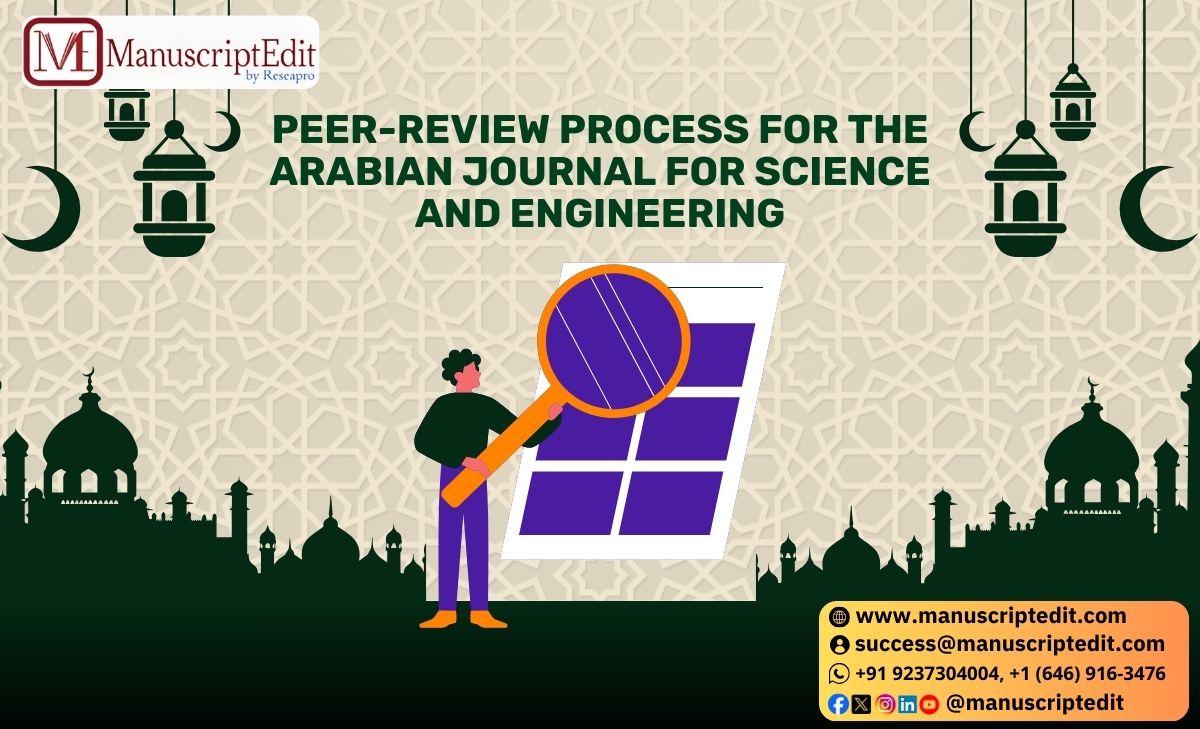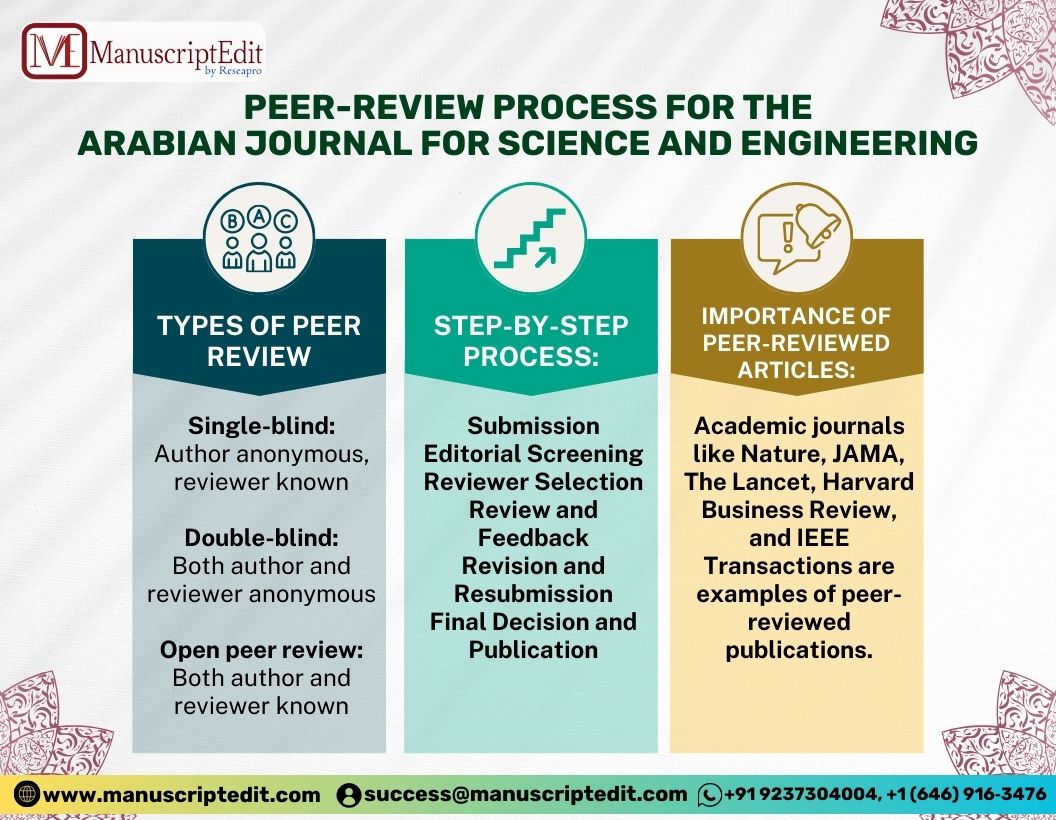|
Getting your Trinity Audio player ready...
|
 The Arabian Journal for Science and Engineering (AJSE) is a renowned, peer-reviewed articles publication that showcases cutting-edge research in science and engineering. As a cornerstone of scientific publishing, AJSE’s peer-review process ensures the highest quality, validity, and relevance standards, making it a trusted source for researchers and scholars worldwide.
The Arabian Journal for Science and Engineering (AJSE) is a renowned, peer-reviewed articles publication that showcases cutting-edge research in science and engineering. As a cornerstone of scientific publishing, AJSE’s peer-review process ensures the highest quality, validity, and relevance standards, making it a trusted source for researchers and scholars worldwide.
The Peer-Review Process: An Overview
Peer review is the systematic evaluation of research by experts in the field, ensuring quality, validity, and relevance.
There are three main types:
- single-blind (author anonymous, reviewer known)
- double-blind (both anonymous)
- open peer review (both known)
The step-by-step process involves submission, editorial screening, reviewer selection, review and feedback, revision and resubmission, and 6) final decision and publication. This process ensures that research meets the highest standards and advances knowledge and innovation.
What Is Peer-Reviewed Articles Example?
Academic journals like Nature, the Journal of the American Medical Association (JAMA), and The Lancet, as well as scholarly publications like Harvard Business Review and IEEE Transactions, are examples of peer-reviewed publications. These publications undergo a thorough and rigorous peer review process, ensuring that only high-quality research and validated expertise are published. This should instill confidence in the reliability of the information for researchers and scholars.

How Do You Find Peer-Reviewed Articles?
To find peer-reviewed sources or articles, search academic databases like Google Scholar, JSTOR, or Web of Science, and filter results by “peer-reviewed” or “refereed.”
Check journal websites, online libraries, and academic search engines like Microsoft Academic or Semantic Scholar. Look for the peer-review logo or “peer-reviewed” indication.

Benefits of Peer Review
- Ensures research quality and validity by critiquing methods, data, and conclusions
- Improves manuscript clarity and quality through constructive feedback
- Maintains ethical standards by detecting plagiarism and fraud, identifying and addressing bias, verifying research integrity
- Promotes accountability and transparency by verifying author responsibility, ensuring research is reproducible and replicable, encouraging open communication and debate
- Enhances the credibility and reliability of research
- Advances scientific knowledge and trust in published findings
Roles and Responsibilities
Authors prepare and submit manuscripts, ensuring quality and accuracy. Editors manage the review process, selecting reviewers and making acceptance or rejection decisions. Reviewers evaluate manuscripts, providing constructive feedback on quality, validity, and relevance. They recommend acceptance, rejection, or revision, aiding editors in their decisions. Clear roles and responsibilities ensure a smooth and rigorous peer-review process, maintaining the integrity and excellence of published research.
Conclusion
In conclusion, peer review is crucial for ensuring research quality and validity. We urge authors to submit their work, editors to rigorously manage the process, and reviewers to provide constructive feedback.



